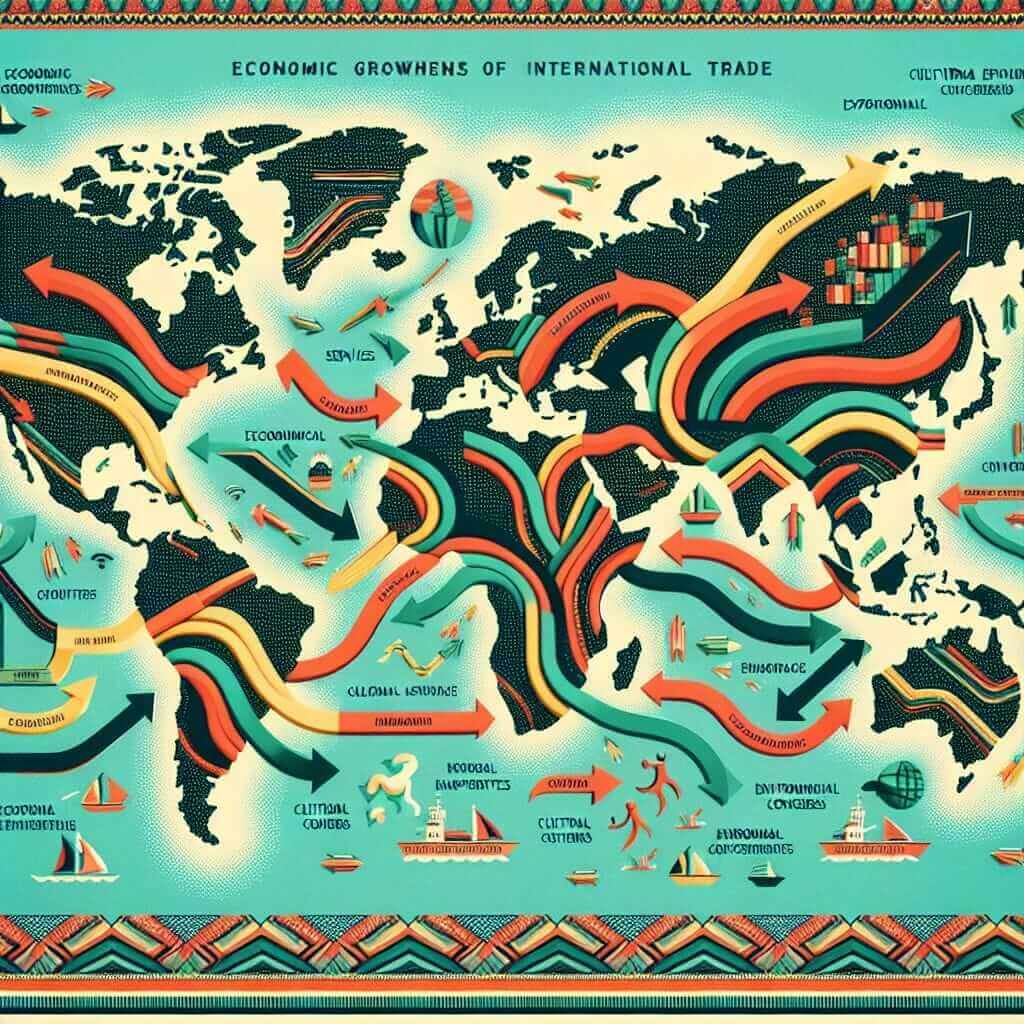The impact of international trade on economic growth is a recurring theme in IELTS Writing Task 2, reflecting its significance in our globalized world. This essay will delve into this complex relationship, providing a comprehensive guide to crafting a high-scoring IELTS essay, complete with a sample answer and expert analysis.
Crafting Your IELTS Essay: A Step-by-Step Approach
Sample IELTS Essay Question:
“Some people argue that international trade leads to economic growth, while others believe it can harm local industries and cause job losses. Discuss both views and give your opinion.”
Analyzing the Question:
This question presents a classic “Discuss both views and give your opinion” format. To effectively address it, you must:
- Acknowledge both sides: Present balanced arguments for how international trade can stimulate economic growth and potentially harm local industries.
- Express your opinion: Clearly state your stance on whether the benefits of international trade outweigh the drawbacks.
Sample Essay:
International trade, the exchange of goods and services across borders, has become increasingly prevalent in our interconnected world. While proponents highlight its potential to fuel economic growth, critics argue that it can negatively impact local businesses and employment. This essay will examine both perspectives before presenting a balanced conclusion.
On the one hand, international trade can be a catalyst for economic expansion. By enabling countries to specialize in producing goods and services where they have a comparative advantage, it fosters efficiency and productivity. This leads to lower prices for consumers, a wider variety of goods, and increased competition, which can drive innovation and economic growth. Furthermore, access to larger markets allows businesses to scale up their operations, generating more jobs and boosting overall economic output.
On the other hand, the influx of cheaper imports can displace domestic production, particularly in industries unable to compete globally. This can lead to job losses, business closures, and a decline in certain sectors of the local economy. Additionally, some argue that reliance on international trade can make countries vulnerable to external shocks, such as economic downturns or political instability in trading partners.

In conclusion, while international trade undeniably presents both opportunities and challenges, the potential for economic growth outweighs the risks. Governments can mitigate negative impacts by implementing policies that support affected industries and workers, ensuring a more inclusive and sustainable model of global trade. By fostering a competitive domestic environment while embracing the benefits of international markets, nations can harness trade as a powerful engine for economic prosperity.
(Word count: 279 words)
Writing Tips:
- Structure: Employ a clear structure with an introduction, body paragraphs addressing both sides of the argument, and a concise conclusion stating your opinion.
- Vocabulary: Use topic-specific vocabulary related to economics and trade (e.g., comparative advantage, globalization, tariffs).
- Grammar and Cohesion: Demonstrate a good command of grammar and use cohesive devices to link ideas smoothly.
- Support Your Claims: Back up your arguments with relevant examples or evidence.
Essential Vocabulary:
- Comparative advantage: (noun) /kəmˈpær.ə.tɪv ədˈvɑːn.tɪdʒ/ – The ability of a country to produce a good or service at a lower opportunity cost than another.
- Globalization: (noun) /ˌɡloʊ.bə.ləˈzeɪ.ʃən/ – The process of interaction and integration among people, companies, and governments worldwide.
- Tariffs: (noun) /ˈtær.ɪfs/ – Taxes imposed by a government on goods and services imported from other countries.
- Free trade: (noun) /friː treɪd/ – International trade without tariffs, quotas, or other restrictions.
- Protectionism: (noun) /prəˈtek.ʃə.nɪ.zəm/ – The economic policy of shielding a country’s domestic industries from foreign competition by taxing imports.
Conclusion: Mastering the Art of IELTS Writing
Understanding the impact of international trade on economic growth is crucial for achieving a high score on the IELTS Writing Task 2. By following the guidelines outlined in this essay, practicing your writing skills, and expanding your vocabulary, you can confidently tackle this topic and improve your overall IELTS performance. Remember to analyze the question carefully, structure your essay logically, and support your arguments with relevant evidence.